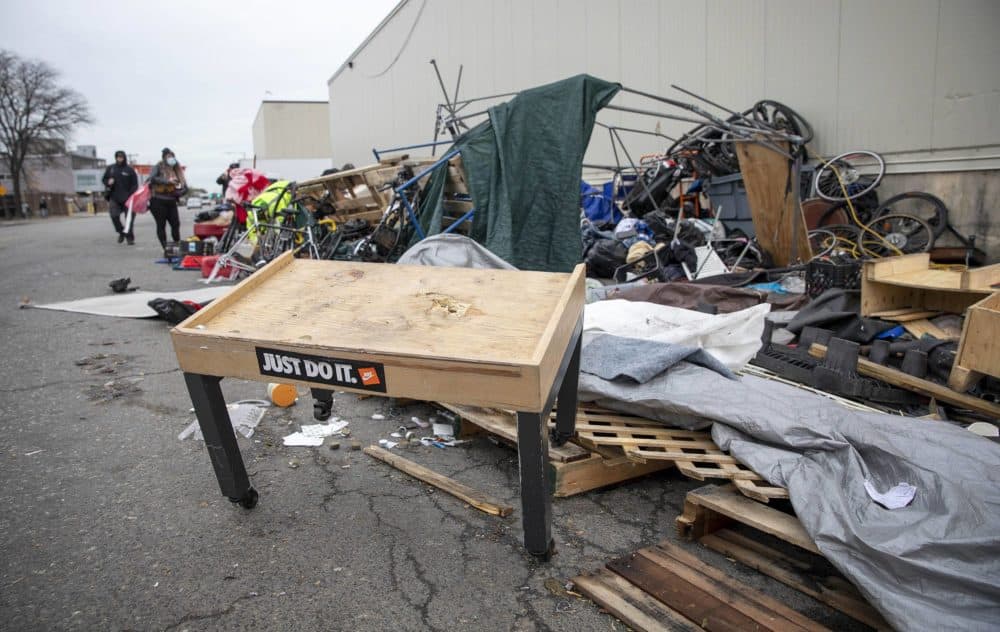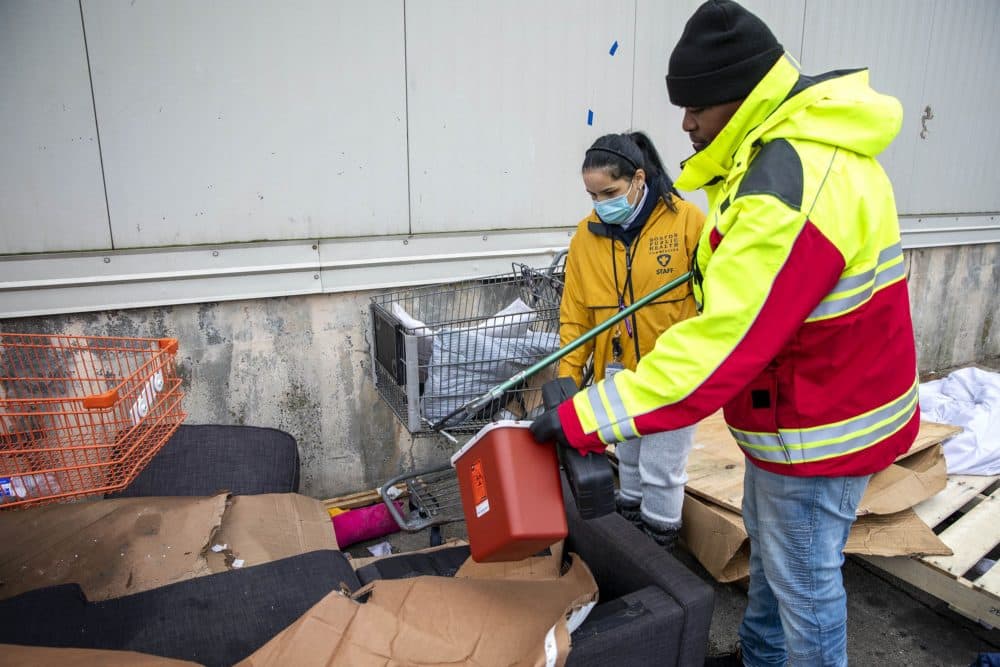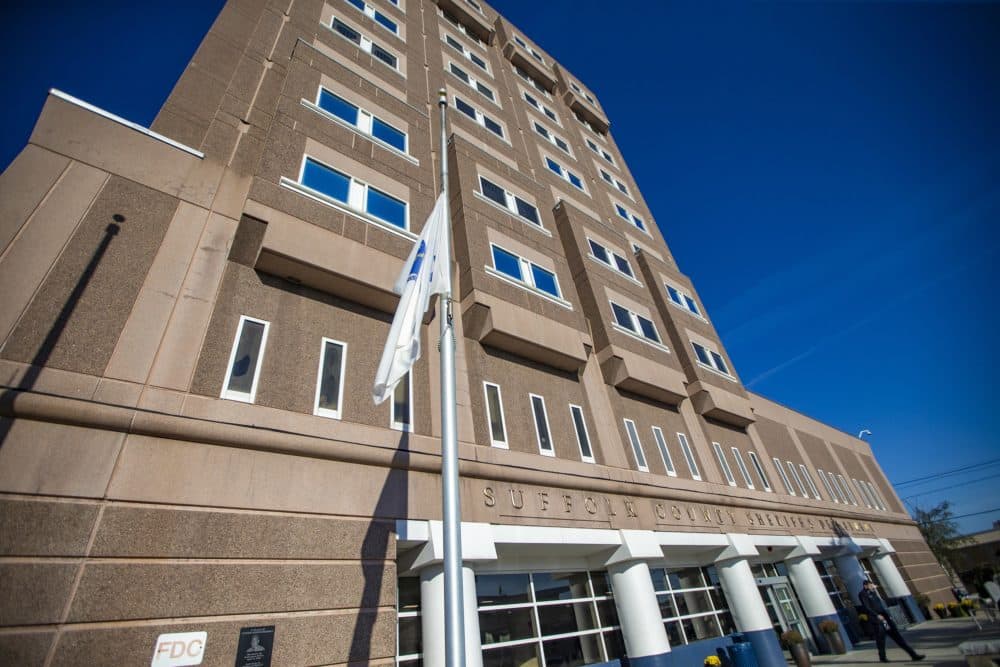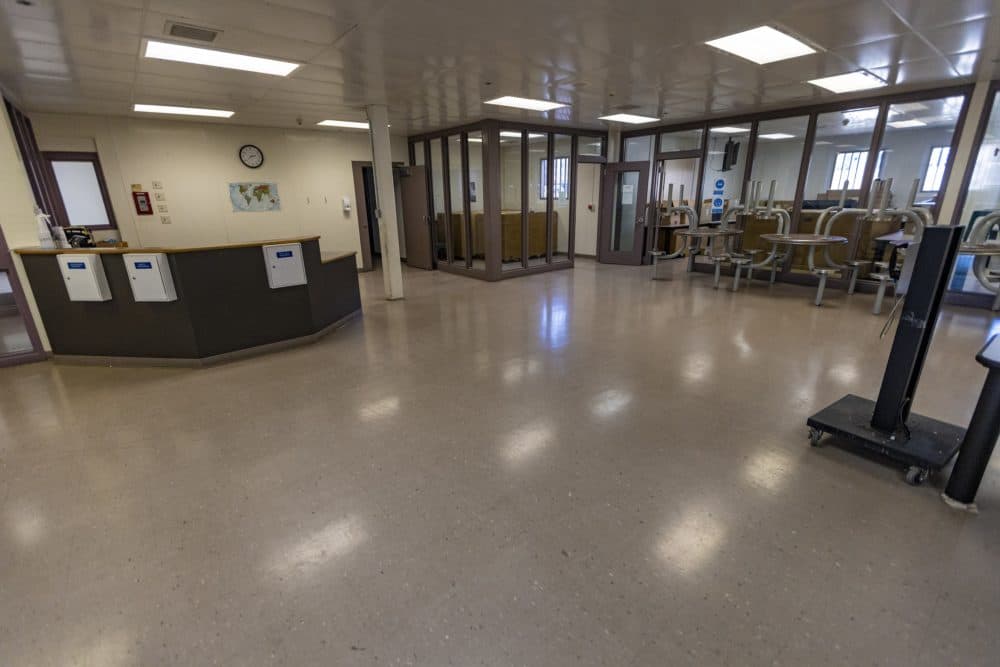Advertisement
Janey outlines removal procedures for tent encampment, says correction court will begin Monday

Acting Boston Mayor Kim Janey has outlined more details about how the city will begin removing the large mass of tents near the intersection of Massachusetts Avenue and Melnea Cass Boulevard, an encampment she has declared a public health emergency.
Separately, Janey administration officials said Friday that a special court session will be operating in the Suffolk County jail starting Monday.
Although the city already has removed some tents, officials said those removals were done for regular building maintenance. As of Friday, the Janey administration said it now has procedures in place for clearing the area and it's moving forward with a sense of urgency. Notices went up on some tents Friday saying that they would be removed in 48 hours. City officials emphasized that no one will be forced to leave the encampment unless there is shelter available.
"We will make sure that the encampment protocols being implemented align with the actual resources that are available," said Boston Health and Human Services Chief Marty Martinez. "No person will be asked to remove their tent or remove their temporary shelter if there is not any bed available for them. That is explicitly stated in the protocol and explicitly is the intention of this plan — to get people the care they need, not simply to remove tents and disperse them."

The removal procedures involve several things: notifying those living in the tents first and giving them 48 hours to move; providing storage of belongings; offering shelter or other services such as mental health and addiction treatment; offering transportation to those services; notifying health care providers to continue medical treatment; and providing notice as to where items on the streets have been stored.
The city said those who who cannot go to shelters or other available housing must be offered some type of shelter, including detox or drug treatment, before a person would be required to move. Those who still refuse to move their belongings and leave could be charged with disorderly conduct.
"The goal of this protocol is to get people the right resources and services they need and to get them out of these tents and temporary shelters that create a public health and public safety crisis," Martinez said.
Whether there is enough temporary shelter to accommodate those living on the streets is not clear. Martinez said a recent survey of those living in the tents indicated about 350 people were on the streets at that time. He said on average, there are about 80–90 shelter beds available on any given day, but that number fluctuates.
Martinez also said the city is working with the state to provide more transitional and so-called "low threshold" housing that will accept some of those who are not able to go to area homeless shelters. And Janey has encouraged the state to spend a pledged $30 million to develop a regional plan for housing and treating individuals struggling with addiction.
The new protocol goes into effect immediately, and removals will take place next week. The city said it did not have a timeline by which most of the tents would be cleared.
Separately, the Janey administration officials also said that a court will be operating in the Suffolk County jail starting Monday. The Trial Court has confirmed the court session will be held in a room at the jail on Nov. 1.
The court, called the "Community Response Court Session," will begin processing cases of those who are living in the tents and have outstanding criminal warrants.


Janey's Chief Communications Officer, Stephanie Garrett-Stearns, said the court is "one of the elements that is called for in Mayor Janey's executive order and is moving forward separately, but in parallel."
"It is not our expectation that the unsheltered vulnerable individuals that we are looking to help and support are the primary subject of this new community response session," Garrett-Stearns said. "The session is really designed to target individuals charged with serious offenses who are preying upon the more vulnerable in this part of our city. So while the timeline is concurrent, these two efforts are really designed to address two different types of populations."
The state public defender agency, the Committee for Public Counsel Services (CPCS), will have to represent those brought to the court. CPCS has expressed concerns about the session.
"We have made that clear that our role is to represent our clients interests," said CPCS General Counsel Anthony Benedetti "And if our client says 'I don't want any treatment, I don't want a bed, I want to go home,' and if home is the street, then that is what we will advocate for."
Suffolk County Sheriff Steve Tompkins has renovated a room in his jail for the court session. He is also converting part of a building on the jail campus into a treatment facility that could commit some of those from the area to treatment for up to 90 days. Tompkins' office did not respond to questions about when the treatment facility will be operating.
